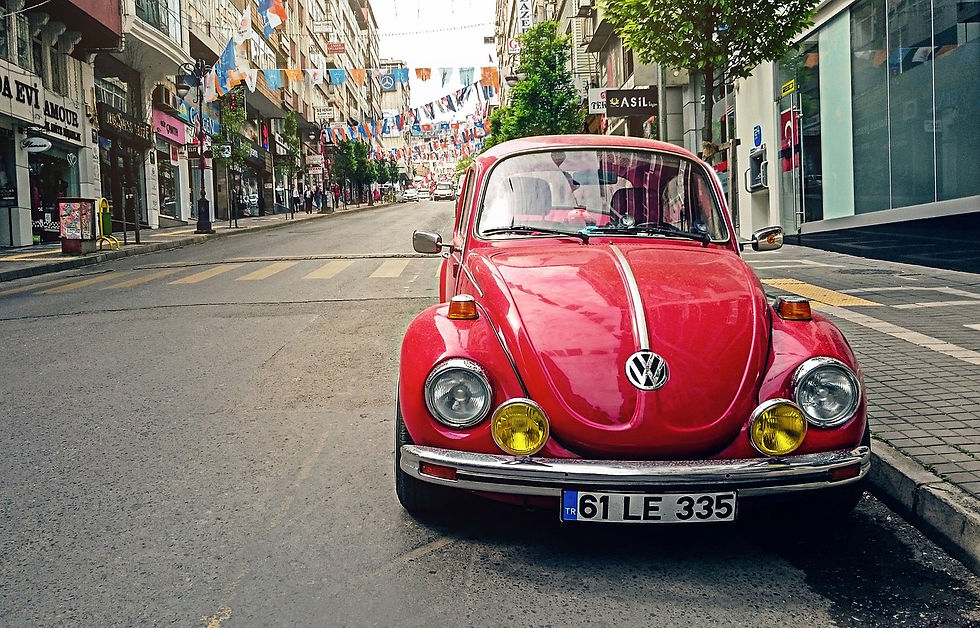The Chinese Names of Foreign Car Brands: Ingenuity, Creativity, and a Few Laughs.
- infolexorient
- Jan 20, 2025
- 3 min read
Updated: Jan 22, 2025
Talking about foreign cars in China is like opening a trunk full of linguistic surprises. While the brands we know and love (or desire) often have well-established names in their home countries, upon arriving in China, they often undergo a linguistic makeover to better fit the local market. Because, let's be honest, in the Asian giant, it's not enough to just sound good; a name must tell a story, convey something positive, or at least avoid becoming an unintentional joke.
Buckle up! Let’s take a ride through some of the most curious and fun Chinese names for car brands.

A shower of creativity on wheels
When foreign brands land in China, their names are carefully adapted. Not only must they sound similar to the original name, but they must also incorporate Chinese characters that carry a positive meaning. And this is where the magic happens.

For instance, BMW is known in China as 宝马 (Bǎomǎ), which literally means "Precious Horse." It's elegant, fast, and classy, just like the German brand evokes. Mercedes-Benz is no slouch either, with its Chinese name 奔驰 (Bēnchí), which translates to "Galloping at high speed." If you close your eyes, you can almost imagine crossing an endless horizon in one of those cars.

Toyota takes a more grounded approach with 丰田 (Fēngtián), meaning "Abundant Fields." It's a nod to the sustainability and reliability of its cars. Then there’s Volkswagen, which chose 大众 (Dàzhòng), meaning "The People," perfectly capturing the democratic spirit of the "people's car."
But not all names are a huge success.
Chevrolet and the curious case of “pure snow”

One of the most attention-grabbing names is Chevrolet. In China, this brand is known as 雪伦伊 (Xuělúnyī), which sounds refined and can be translated as "Pure and Elegant Snow." Beautiful in theory, but in practice, it suggests an image somewhat disconnected from what many expect from a car: power, speed, and robustness. It’s also associated with the word "slow" (慢, màn), which certainly doesn’t help.

The issue isn’t an exact similarity with the word "slow" (慢, màn), but rather an indirect association. In the Chinese language, where phonetics and cultural associations are key, some consumers joked about whether a car named "Snow" might convey a sense of coldness or slowness rather than energy and dynamism. While these perceptions aren't based on a direct linguistic connection, the Chinese market, always sensitive to names, didn’t quite forgive this little dissonance.
Despite these comments, Chevrolet managed to overcome these early impressions with solid designs and a good marketing strategy. In the end, many consumers came to appreciate the elegant and poetic side of the name, seeing "Xuělúnyī" as a distinctive touch in a sea of conventional names.
Stories between bottles of baijiu

Not all brands get a perfect Chinese name right away. It is said that some marketing teams, faced with the task of finding an impactful name, resorted to long brainstorming sessions accompanied by baijiu, the famous Chinese liquor. Perhaps this explains why some names sound more like poetry than cars.
For example, Nissan is known as 日产 (Rìchǎn), meaning "Produced in Japan." Although practical and direct, some consumers joked that the name was too obvious: "Well, we all know it’s Japanese, no need to remind us!"
Ingenuity or exaggeration?
At the end of the day, the Chinese names of foreign brands are a fascinating example of how culture and marketing intertwine. Each name is an attempt to resonate with local values: prosperity, speed, luxury, or sustainability. Although some names provoke laughter or raised eyebrows, they are also a charming part of globalization.
So, the next time you see a BMW on the streets of Shanghai, remember it’s not just a luxury car but also a "precious horse" galloping towards the horizon. And that, my friend, is pure automotive poetry.
Here’s a strange Volkswagen commercial with horses:






Comments